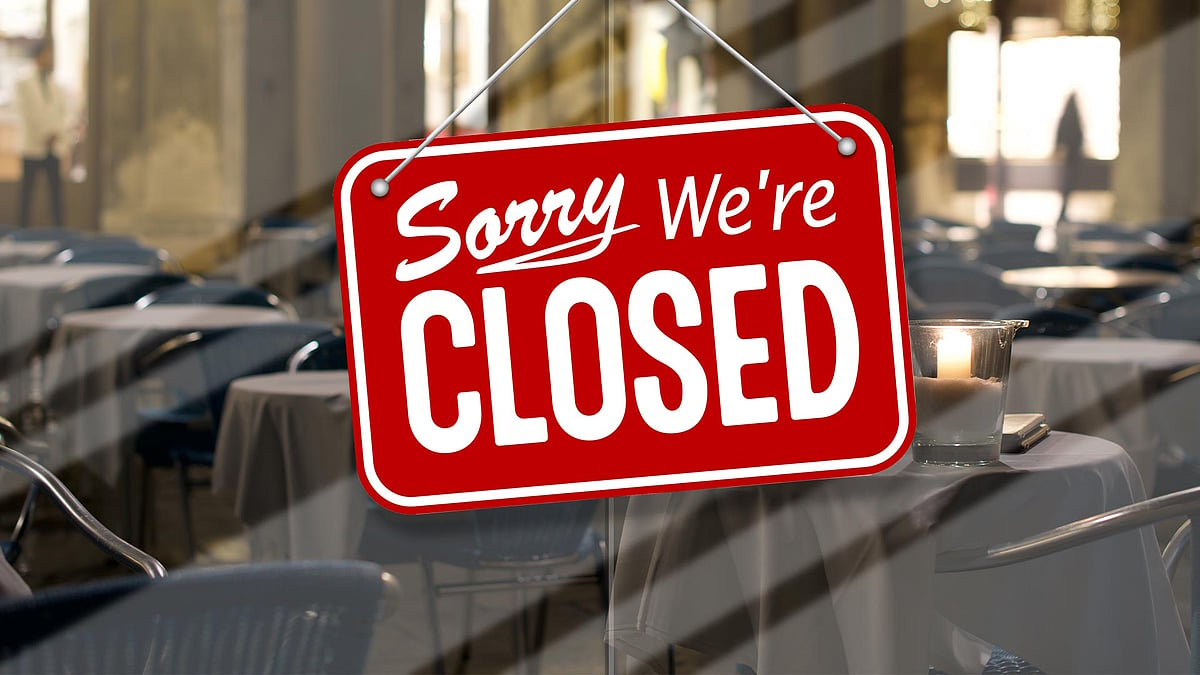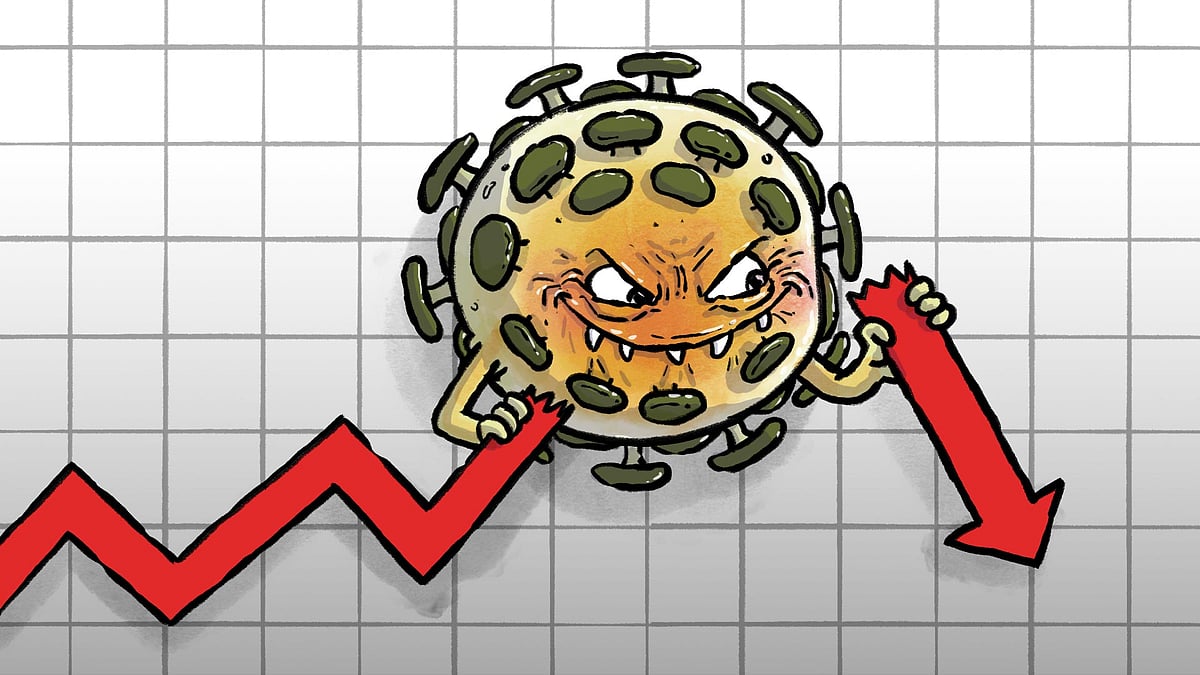Coronavirus: 16 things you can do to tide over the economic fallout
Here’s a guide to improving your personal finances in the time of a pandemic.
The Covid-19 economic crisis has started to impact the personal finances of people at large. Things are likely to get worse in the days to come. In this scenario, here are a few tips that people can follow to slightly improve their position on the personal finance front.
This comes with the disclaimer that each person’s situation is unique, so everything I say here might not apply to everyone.
So, here we go.
First and foremost, if you do not have an emergency fund, start building one now. While one might like to assume that the future will be like the present, there are no guarantees in life. The size of this fund depends on your salary and your ability to set aside money every month. In my case, I have close to two years of my personal expenses set aside. Of course, that is rather extreme but it comes from my insecurity of being a freelancer who gets paid on a per article basis, and having been unemployed for reasonable lengths of time in the past. Also, I am single, don’t like travelling, shopping doesn’t give much meaning to my life, I have a mobile phone which is priced under Rs 10,000, and I don’t have to support anyone. But even aiming for three months is a great start. Any saving is better than no saving. It’s as simple as that.
People who do not appreciate the idea of saving basically assume that the future will be like the present. As they say, to each her own. But having money in the bank is not just about facing an emergency. It also helps in making better decisions in life. Let’s say your company fires you or lowers your salary in the months to come. If you have money in the bank, you don’t have to take the first job offer that comes along if you don’t like it. Having some money in the bank will allow you to buy time and wait for the right offer to come along. Money in the bank also helps you avoid bad bosses (and believe me, there are way too many of them out there and it’s only going to get worse here on).
Actually, there is something that you need to do even before you start building an emergency fund. You need to repay your credit card dues and/or your outstanding personal loan. Credit card interest is greater than 20 percent per year and there’s no point in continuing to pay that. A friend who is financially stretched recently asked me if he should continue with his systematic investment plan, or SIP, or pay off his credit card outstandings, given that he wasn’t in a position to do both. I suggested the latter. The chances of an SIP (or any other investment for that matter) giving a return of higher than 20 percent a year are minimal. Hence, it makes sense to first try and pay off high-interest debt.
Prioritise loans which charge a higher rate of interest. If you have credit card outstandings and some money in a bank account, please use it to repay the outstandings. There is no point in having money in a bank account earning three-six percent interest while paying an interest of over 20 percent, and then wondering why you are never free of debt. Also, if you are in a position to take a personal loan to repay credit card outstandings, please do. The interest rate on a personal loan is significantly lower.
With the stock market crashing, many people over the last few weeks have realised the importance of asset allocation and, more importantly, the importance of the humble bank fixed deposit. This is the oldest cliché in investing, don’t have all your eggs in one basket. While a bank fixed deposit might pay a very low rate of interest, you are at least guaranteed on the principal amount invested. And it is this money that will be of use in times like these. Again, this is as right a time as any other to have proper asset allocation in place. While return on capital is important, return of capital is also very important.
There are people whose money is stuck in illiquid assets like real estate. This again brings out the importance of having money in bank fixed deposits which can be accessed in situations like the current one, where the chances of regular income breaking down are high.
Of course, all this is only possible if you are in a position to save some money every month. If you are highly leveraged, then there’s nothing much that you can do other than hope that you can continue to pay your EMIs, not lose your job or find a higher-paying job. The damage is already done. One thing you can possibly do is to get rid of assets you really don’t need. Let’s say you have one more house than you need, you can try selling that. This is especially important for people who are highly leveraged as well as those who are stuck with illiquid assets.
In the months to come, minimise your discretionary expenditure. The foreign/domestic holiday can wait. So can the purchase of the latest mobile phone. Mobile phones which cost less than Rs 10,000 do the same things that mobile phones which cost more than Rs 30,000 do. You can call and use Whatsapp on all smartphones. If you are thinking of buying a car, a small car is just fine. This is not the time for status signalling through buying things.
Build a checklist of things you spent money on between January and March. You can even go longer and check out the entire last financial year. You will be surprised by how many of the things that you have bought, sometimes even without planning to, aren’t really necessary. In my case, I can see so many books all around me that I have bought and probably will never end up reading. In the last one month, I have realised that if I resist buying a book once (of course on Kindle), then my chances of buying it go down dramatically.
There is no point in having half a dozen credit cards. More the number of cards, more the temptation to spend. This is simply because the pain of spending plastic money is not the same as the pain of spending cash. This is something that is very well documented. In fact, people who use cards to shop end up having bigger order sizes simply because they don’t feel the pain of spending. A couple of credit cards, at best, are good enough. One reason I am never tempted to shop is because I have two debit cards and no credit cards. And as I said, it’s always more difficult to spend cash. So, carry cash and not cards around with you.
Also, as always, be careful in not having your savings bank account in the same bank as you have got your credit card from. Somewhere in the fineprint, if you default on the credit card payment, you have allowed them access to your savings bank account. Of course, this is not to suggest that people are trying to default on their credit card outstandings, nonetheless, this is a good practice to follow.
Make sure that the nominees on all your mutual fund investments, insurance policies and bank accounts are updated. Also, have details of all your investments and bank accounts on a sheet of paper or a word file. Tell someone in your family exactly where it is located.
Bank credit growth has slowed down majorly in the last one year. In fact, retail loans is the only segment that continues to grow fast. In the months to come, as credit growth slows down further, the sales pitch of banks offering personal loans, credit cards, etc, will only increase. Try and resist the temptation.
This is a slightly philosophical point. If spending gives you meaning in your life, like is the case with so many people I know, you really have a problem ahead. Now is the time to tackle this head on. We are in for tough times ahead.
On top of everything, hope — and if you believe in god, pray — that you don’t get fired. Also, if you are the kind who tries to crack deals with god, pray to him that your company cuts salaries and does not fire employees. This will help you stay in the game slightly longer, until you figure out what options you really have.
Finally, be good to your parents, in-laws and siblings. Because they might have to either take you in or bail you out. Also, be good to your spouse, this is the time when you really need to work together as a team.
And remember, everything doesn’t have a solution. Life is not like an Indian school exam question, which has a right solution and a wrong solution. In most cases, you can mug up the right solution and vomit it out...But that doesn’t always work when it comes to life.
 ‘Scary scenario’: Coronavirus is breaking the back of India’s restaurant industry
‘Scary scenario’: Coronavirus is breaking the back of India’s restaurant industry The end of the lockdown won’t bring life back to normal. Here’s how the Covid-19 economic crisis is likely to spread
The end of the lockdown won’t bring life back to normal. Here’s how the Covid-19 economic crisis is likely to spread